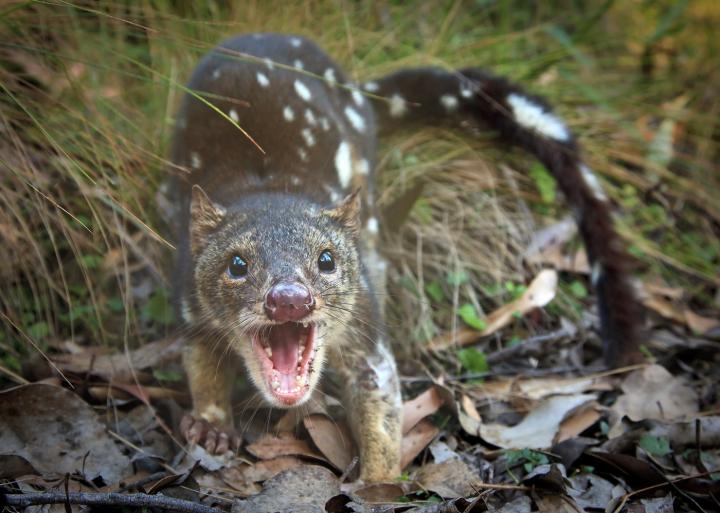
Credit: Gerhard Körtner
A new approach to compensate for the impact of development may be an effective alternative to biodiversity offsetting – and help nations achieve international biodiversity targets.
University of Queensland scientists say target-based ecological compensation provides greater certainty and clarity, while ensuring the management of impacts from projects like new mines, roads or housing estates directly contributes to broader conservation goals.
UQ’s Dr Jeremy Simmonds said most countries in the world have or are developing policies on biodiversity offsetting.
“Biodiversity offsetting is a form of compensation that typically aims to achieve an outcome in which there is ‘no net loss’ of biodiversity as a result of a particular development,” he said.
“Calculating how much and what type of offset is required to compensate for biodiversity losses caused by a project is notoriously complex and confusing.
“What’s more, as currently designed and implemented, most offsets result in an overall decline in biodiversity, which is at odds with stated goals of no net loss.”
Dr Simmonds said target-based ecological compensation resolves much of this uncertainty by explicitly linking compensatory requirements to biodiversity targets.
“Let’s say a country has committed to doubling the area of habitat for a particular threatened species,” he said.
“Under target-based ecological compensation, a project that causes a loss of 100 hectares of that species’ habitat would need to restore or recreate 200 hectares of that same species’ habitat.
“The project has created twice as much habitat as it destroyed, and therefore contributes to the jurisdiction’s target of doubling habitat availability for that species – it’s that simple.
“Most nations already have explicit targets for nature conservation, including under international agreements like the Convention on Biological Diversity.
“In fact, the new draft set of targets under the Convention on Biological Diversity would require no net loss of natural ecosystems.
“Our approach suggests a way to achieve that, while recognising development projects that damage biodiversity are sometimes necessary.
“This approach harnesses the compensation that proponents of development are increasingly compelled to provide, generally at great cost and effort, towards the achievement of broader nature conservation goals like internationally-agreed targets.”
UQ’s Professor Martine Maron said the new proposal provided an opportunity to protect nature in the face of ongoing development.
“Offsetting is not yet delivering on its promise,” she said.
“Future development must be strictly managed, so that it does not proceed at the expense of our precious biodiversity.
“Target-based ecological compensation is a tool that can reconcile nature conservation and development, resulting in better outcomes for the planet and for people.”
###
The framework was developed by an international working group and produced with the support of the Science for Nature and People Partnership (SNAPP), a collaboration of The Nature Conservancy, the Wildlife Conservation Society, and the National Center for Ecological Analysis and Synthesis (NCEAS).
The target-based ecological compensation framework has been published in the journal Conservation Letters (DOI: 10.1111/conl.12695).
A blog about target-based ecological compensation is available on the International Union for Conservation of Nature (IUCN) website.
Media Contact
Dr Jeremy Simmonds
[email protected]
61-407-029-324
Original Source
https:/
Related Journal Article
http://dx.




